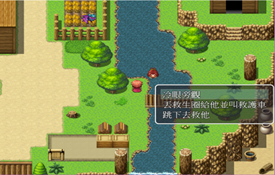Enhancing Children’s Insurance-Related Knowledge and Learning Attitudes Through Digital Game-Based Learning
DOI:
https://doi.org/10.17083/ijsg.v12i2.879Keywords:
Digital Game-based Learning, Insurance Education, Risk Management, Elementary EducationAbstract
This quasi-experimental study was conducted to explore the effects of the application of a digital game-based learning (DGBL) approach in insurance education on elementary-school students’ learning. A digital role-playing game was developed and used in a 4-week insurance education intervention involving 58 sixth-graders in an elementary school in Taiwan. Students in the experimental group learned insurance-related concepts by playing the game, whereas those in the control group received traditional instruction. Learning achievement was significantly better in the experimental group than in the control group, especially for female and low-achieving students. No significant difference between groups was observed for high-achieving students in learning achievement. Scores reflecting students’ attitudes toward insurance education were significantly higher in the experimental group than in the control group. Female and low-achieving students in the experimental group outperformed those in the control group in overall learning attitude, motivation, self-efficacy and learning approach; male and high-achieving students had higher scores only for the learning approach. Our findings support the effectiveness of DGBL in insurance education for elementary-school students and highlight implications for teachers’ integration of DGBL into insurance instruction for children.

Downloads
Published
Versions
- 2025-05-19 (2)
- 2025-05-16 (1)
Issue
Section
License
Copyright (c) 2025 Mengping Tsuei, Hui-Chun Lu

This work is licensed under a Creative Commons Attribution-NonCommercial-NoDerivatives 4.0 International License.
IJSG copyright information is provided here.